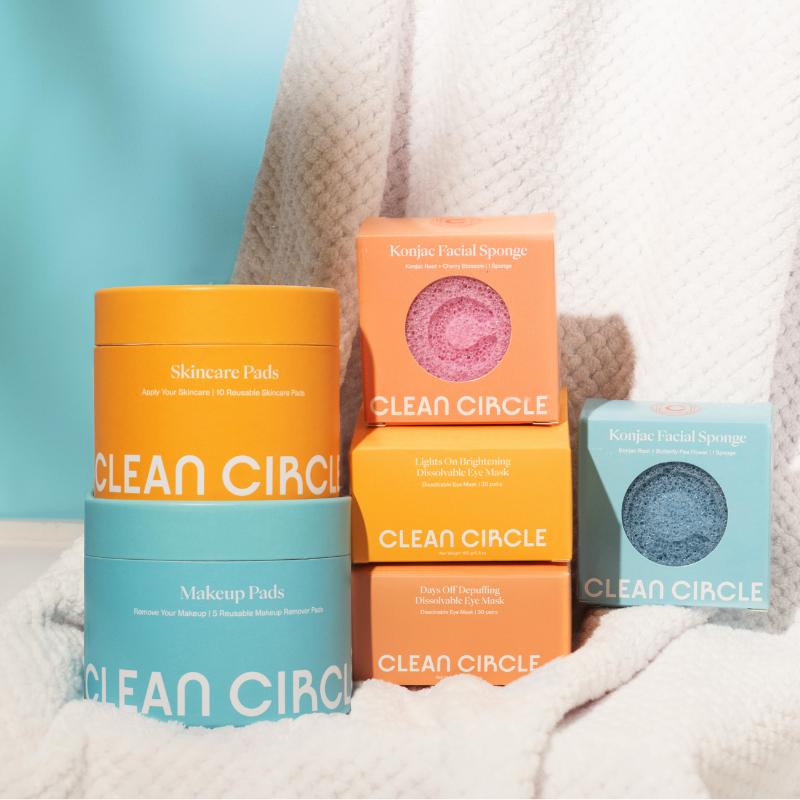
Interviewing Celebrity Makeup Artist Michelle Chung
Share
As we close out this Asian American and Pacific Islander (AAPI) Heritage Month, it’s important to recognize the incredible achievements of creative AAPI women. By showcasing their stories and recognizing their accomplishments, we show our support for diverse narratives and future opportunities for others. From celebrated authors and musicians to groundbreaking directors and actors, AAPI women have made a lasting impact on all forms of artistry.
Through their work, they have explored themes such as identity, family dynamics, immigration struggles, and much more—all while inspiring others to pursue creative endeavors with confidence. By celebrating AAPI woman in the arts this month—and beyond—we are sending a powerful message that everyone deserves representation in all aspects of life.
We want to introduce another female making waves in her respective industry. We interviewed @michellechungmakeup, known for her recent work on the film, "Everything Everywhere All At Once". We dive into her background, her identity, and sense of belonging.
✨What is your ethnicity? I am 2nd generation Korean American
✨How does your ethnicity play a role in your identity within the Asian diaspora? I think as I get older, I’ve really started to think more about the Asian diaspora and where my identity fits within all of it. Growing up I really never specifically defined myself as Korean, I think I really viewed myself as Asian, because that’s how people classified me growing up. But as I’ve gotten older, I’ve really loved learning more about my own culture, and what being Korean means as opposed to the idea that Asians are a monolith. It’s become clear to me that a large part of my identity comes from my parents, my siblings, and the generations before that, and that has really built so much of my personality and character. I’ve been really lucky to recently have worked a lot on projects with a large amount of Asian cast, and learning the differences and similarities of different Asian cultures has been really amazing.
✨Tell us about your background, where you grew up, your upbringing and when you realized you were asian. I grew up in a suburb of Los Angeles, to a middle class family, middle child out of 3 girls. Growing up in LA, I always knew I was Asian, but it wasn’t a big part of my identity. I was always one of just a handful of Asians in school, but always tried to fit in with everyone else. When I got to college, I was surrounded by a larger group of Asians (I went to UCLA, and was suddenly around so many Asian people). So I was acutely aware that I was Asian, but I had tried most of my life to downplay that aspect. As I got older, I started getting more outspoken about who I was, and no longer trying to fit into what people expected me to be. I honestly really started thinking about it late in my life, and it really culminated the most during quarantine. I learned to really be proud of who I was, and embrace that part of me. It’s part of what makes me who I am.
✨What part of your identity do you feel are determined by others or society? I think for a long time, I let a large part of my identity be determined by others. I’m constantly working on letting that not affect me as much. I think I grew up in a time where I was much more concerned about hiding certain portions of my life, or at least downplaying them. I think it’s impossible to not be influenced by society, but I’ve become much more aware of it, and more conscious about being true to myself.
✨If your younger self knew about the progress in AAPI representation, what could that have changed about your experience? Oh, I really wish I could have seen more people that looked like me represented, and also represented not just as stereotypes in film and tv when I was younger. I think it would have given me so much more confidence in myself, and who I am. I think I would never have downplayed certain parts of my personality. I would have felt more sure of myself. It’s so nice now to see so many more varied and different stories of AAPI characters, and really showcasing the nuances of different characters beyond the stereotypical Asian characters I saw growing up. I hope that continues to grow.

